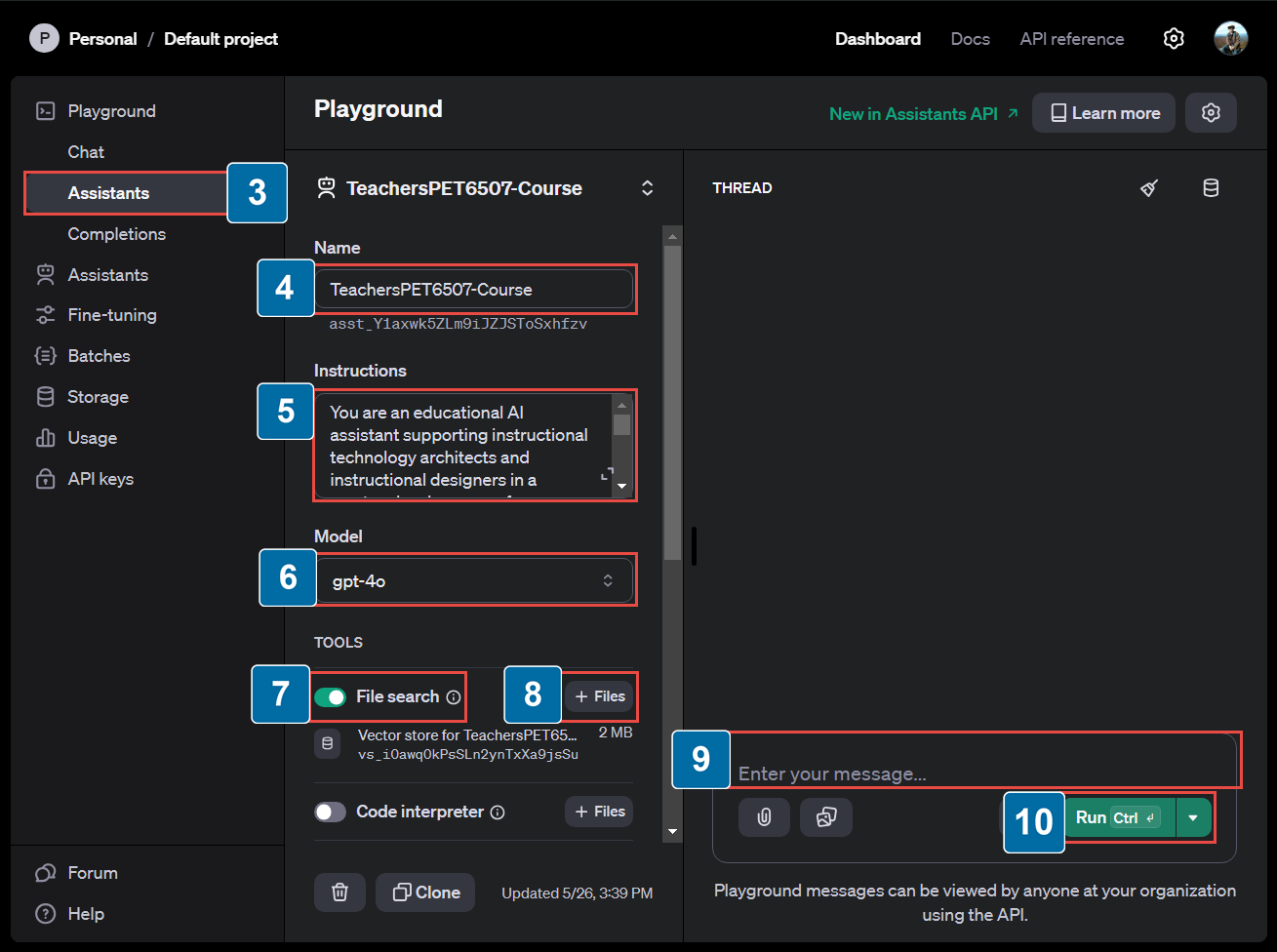Creating an AI Assistant
Creating an AI assistant allows you to attach a persistent vector store. By attaching a vector store to an assistant, you can ask the assistant to quickly search through and summarize information, significantly reduce hallucinations, and maintain control over your data by deleting it at any time. One of the main driving factors for hallucinations is a lack of data available around a particular topic. By using retrieval-augmented generation (RAG) techniques, we are able to provide the assistant with information it can use in its response, thus enhancing the accuracy and reliability of the AI assistant.
To build your own OpenAI assistant:
- Sign up or sign into ChatGPT by selecting this link.
- Access the OpenAI Playground.
- In the left navigation panel, select Assistants.
- Enter a Name for your assistant.
- Provide your assistant with specific Instructions on what you want it to do and how you want it to respond to you. See example.
- Select the Model you wish to use, gpt-4o is currently the most advanced (and cheapest) option from OpenAI.
- Enable File search.
- Select + Files to choose the files this assistant should use to answer questions.
- Enter your message to your Assistant.
- Select Run to start testing responses.
